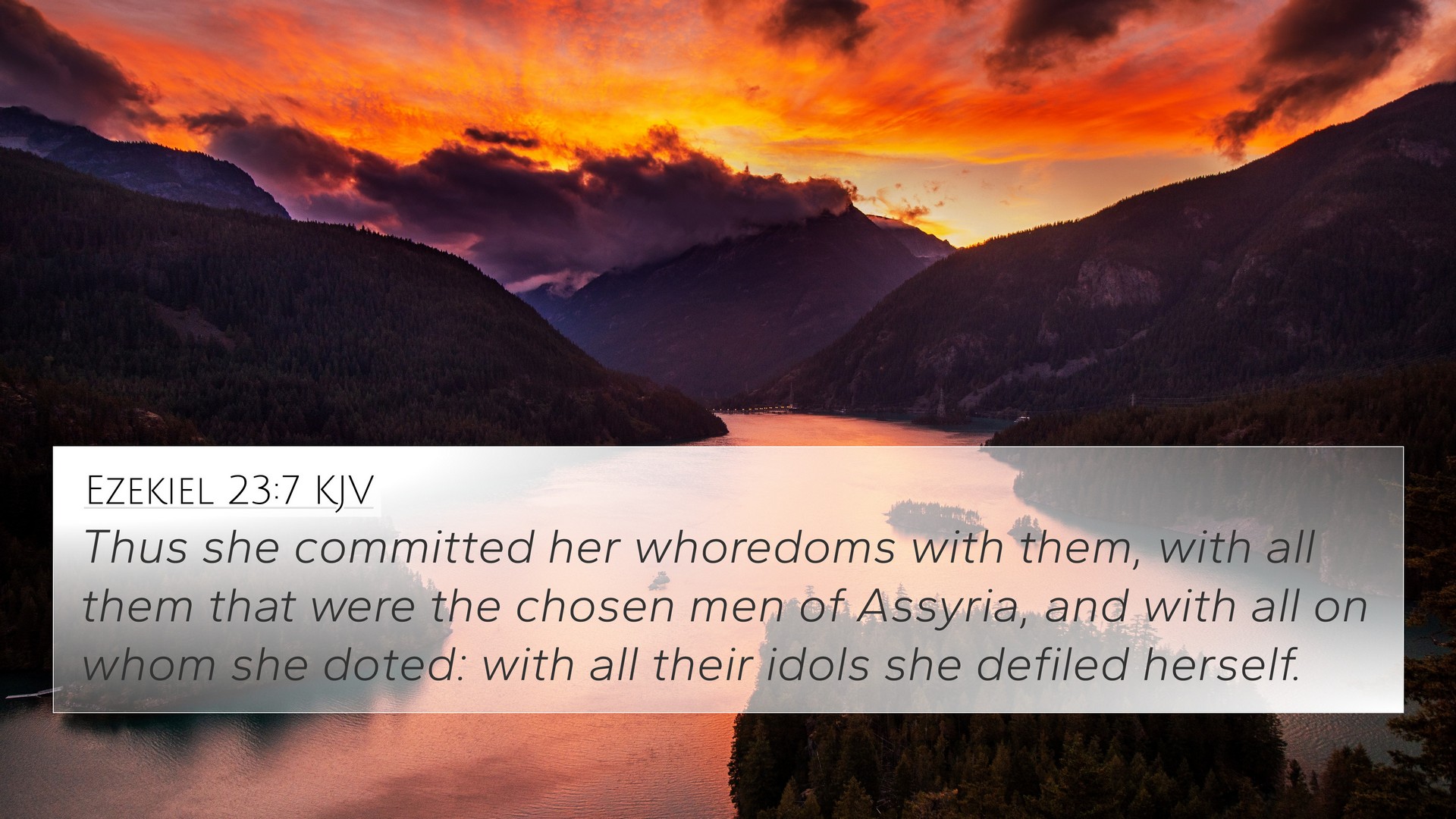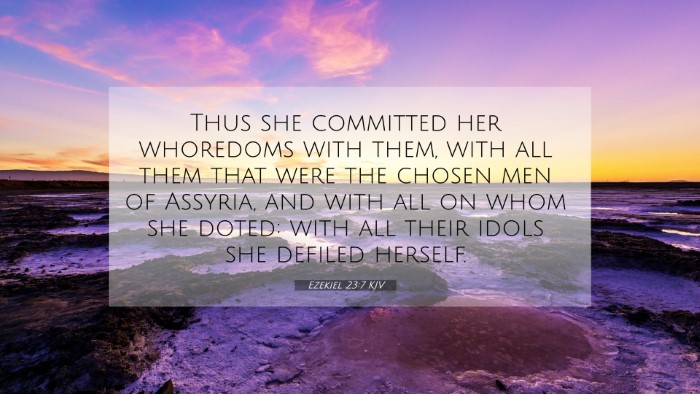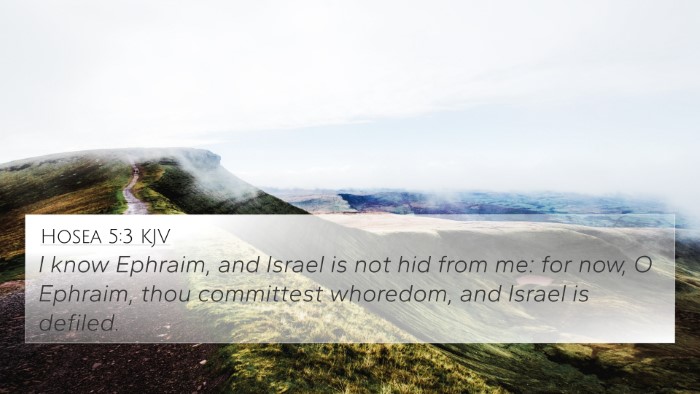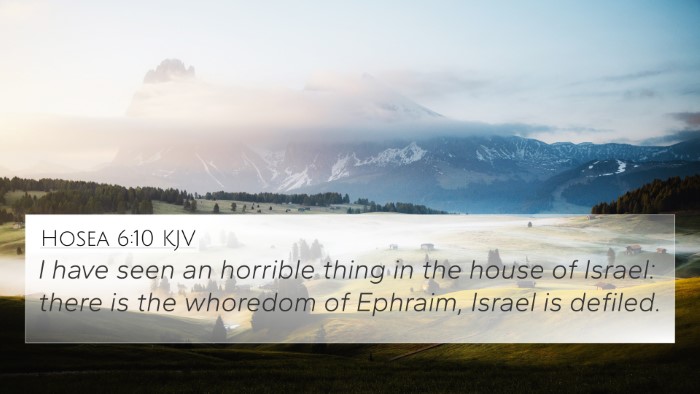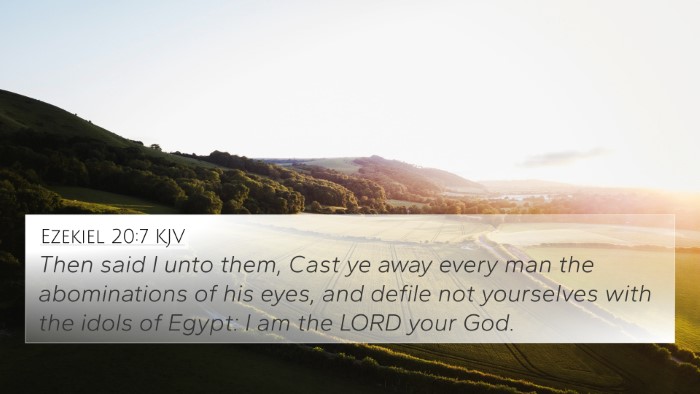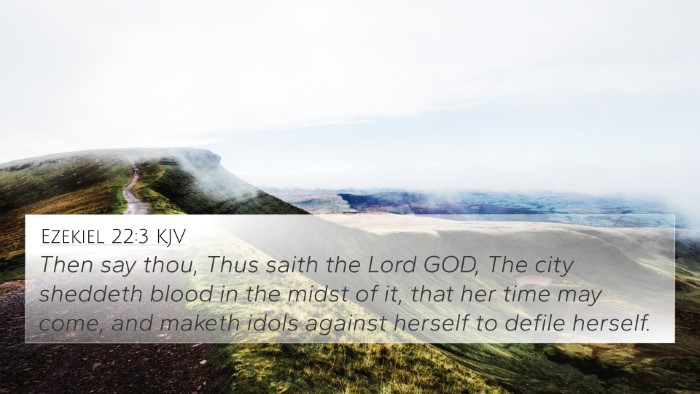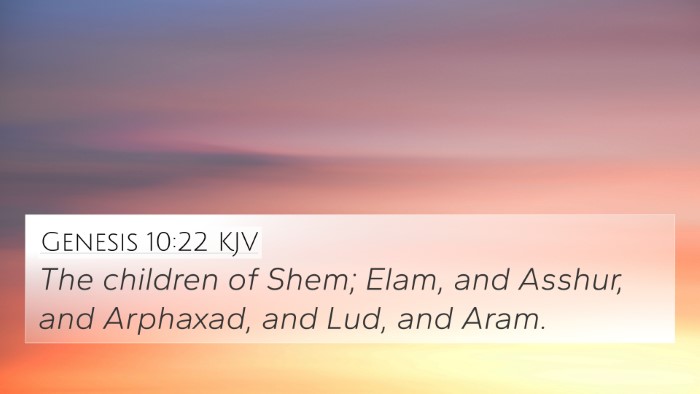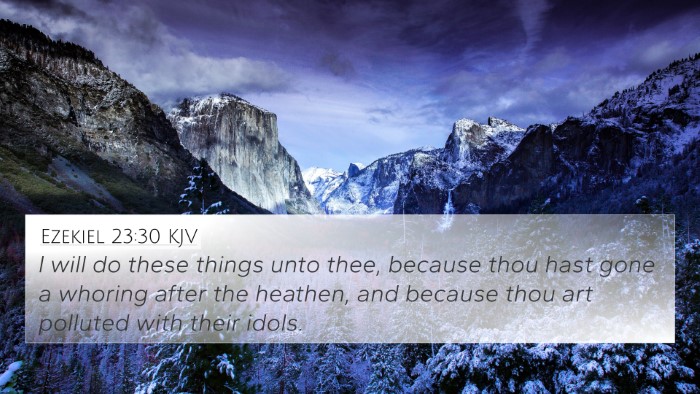Ezekiel 23:7 - Summary and Commentary
Ezekiel 23:7 states: "And her whoredoms and her adulteries, the cities of her lovers, and the idols of her abominations were there." This verse reflects the profound spiritual and moral corruption of Samaria and Jerusalem, illustrated through the vivid metaphor of infidelity.
Understanding the Context
The prophet Ezekiel presents a vivid narrative that allegorizes the unfaithfulness of Israel to God through the metaphor of two sisters, Oholah and Oholibah, representing Samaria and Jerusalem, respectively. This chapter focuses on their idolatrous practices and the resulting judgment.
Commentary Insights
-
Matthew Henry:
Henry emphasizes that the language in Ezekiel 23 portrays how Israel engaged in spiritual prostitution by forming alliances with foreign nations and adopting their idolatrous practices. This betrayal of God is likened to a wife's infidelity, highlighting the seriousness of their transgressions.
-
Albert Barnes:
Barnes views this passage as a declaration of God's judgment upon the cities of Israel, which turned to false gods. He interprets "her lovers" as the surrounding nations that Israel sought alliance with for help, only to lead them further astray from God’s commandments.
-
Adam Clarke:
Clarke adds that the portrayal of physical and spiritual whoredom demonstrates the depths of Israel's infidelity. The mention of “abominations” points to the offensive idols and practices that were an affront to God's holiness.
Thematic Connections
This verse illustrates themes of spiritual infidelity and the consequences of turning away from God. It serves as a reminder of the importance of fidelity in one’s relationship with God.
Bible Verse Cross-References
- Hosea 2:2: Illustrates the theme of unfaithfulness and God's commands regarding spiritual fidelity.
- Isaiah 1:21: Highlights the moral decline of Jerusalem similar to that of a harlot.
- Jeremiah 3:6-10: Focuses on the adulterous nature of Israel's relationship with God.
- Revelation 17:1-5: Relates the imagery of harlots to the future judgment of false religions.
- Ezekiel 16:30: Expresses God's accusation of Israel as more than a harlot for their abominations.
- James 4:4: New Testament reference that calls friendship with the world enmity against God, paralleling Ezekiel's warnings.
- 1 Corinthians 10:20: Discusses the nature of idolatry which corresponds with the themes in Ezekiel.
Application and Reflection
The visual analogies and harsh realities presented in Ezekiel 23:7 prompt readers to contemplate their own spiritual faithfulness. In what ways might we seek "lovers"—idols or distractions—that draw us away from a deeper relationship with God?
Tools for Bible Cross-Referencing
For those looking to study the scriptures in a deeper context, consider utilizing:
- Bible Concordance: A comprehensive tool to find related verses and themes.
- Cross-Reference Bible Study Guides: Guides that align similar verses together for thematic studies.
- Bible Chain References: Systems that link related verses in a manner that depicts scriptural dialogue.
- Bible Reference Resources: Books and online tools that provide analyses and parallels between verses.
Conclusion
Understanding Ezekiel 23:7 requires recognizing the depth of Israel's betrayal of God. Through public domain commentaries, one can see how such themes resonate throughout scripture, revealing both historical and timeless truths about the nature of fidelity in our spiritual journeys.
Final Thoughts
The study of Ezekiel and the connections to the broader biblical narrative urges believers to pursue a closer relationship with God, avoiding the pitfalls of spiritual unfaithfulness prevalent in the past and present.
